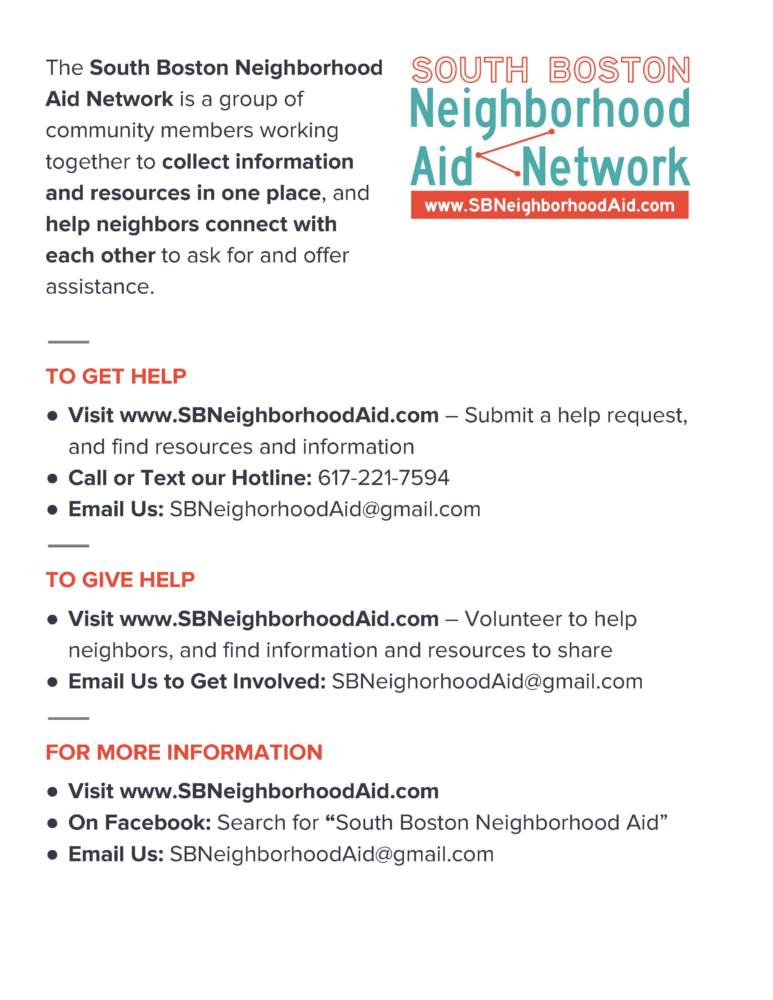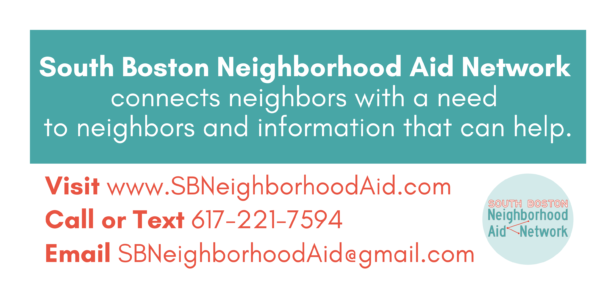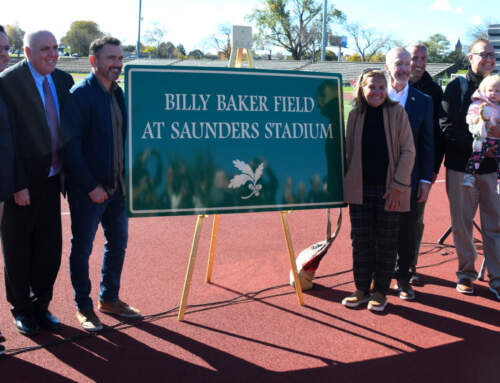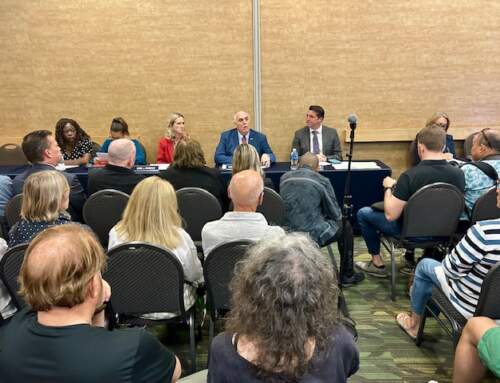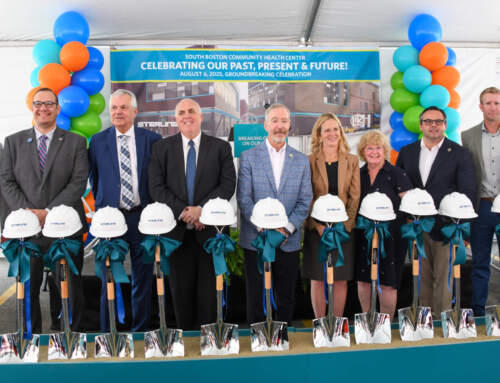It was late on a Friday afternoon when the South Boston Neighborhood Aid Hotline received a call from a hospital social worker: A young woman was about to be released from the hospital. She was still very sick, and had no family or friends to help make sure there was food in her apartment for the weekend.
“I’ve been making call after call just trying to find this woman some food. Someone said you might have volunteers who could help?”
Within an hour, South Boston residents had stepped up to shop and deliver groceries to her door, and were even standing by to help walk her dog. None of the volunteers knew the woman, but that didn’t matter.
Continuing a long tradition of neighbors helping neighbors, the South Boston Neighborhood Aid Network (SBNAN) was launched in March to support South Boston community members throughout the duration of the coronavirus pandemic. SBNAN was established by South Boston Neighborhood Development Corporation, which serves as the principal agency and central coordinator. More than 30 residents and virtually all members of the South Boston Association of Nonprofits, including the South Boston Neighborhood House, have joined the effort.
SBNAN has two main goals:
1. Centralizing information and resources so they are kept up to date and accessible by residents, nonprofit staff and other community members, and
2. Connecting neighbors in need with volunteers and programs that can help them.
To accomplish the first goal, the SBNAN website at www.SBNeighborhoodAid.com features a growing list of resources – from how to find food pantries and meal sites across South Boston, to how to apply for benefits or keep your kids busy at home. SBNAN’s emphasis is on providing information specifically relevant to people living and working in South Boston.
“Information is emerging and changing all the time, and it can be difficult to sift through it all,” said Donna Brown, Executive Director of South Boston NDC. “For our neighborhood nonprofits, centralizing information in one place frees us up to devote more resources to delivering services to the community. And for residents, it’s important to know where you can go to find the latest and most relevant information when you need it.”
“Families may not need help finding a food pantry today, but if they have those needs in the coming weeks or months, we want to make sure they know where to find the answers they need,” said Brown.
SBNAN organizers recognize that not every need can be resolved with an informational website. For the many residents who need material support with specific things, like grocery or supply pick-ups, SBNAN is organizing a growing base of volunteers from across South Boston.
Residents with such a need have many ways to request help: they can submit an online form, send an email, call or text the hotline, or send a Facebook message. SBNAN then screens the request and sends it out to volunteers who have signed up to help. More than 30 volunteers have stepped up so far to be “on call” for help requests. Several have even committed to being Neighborhood Point People, helping match volunteers to make sure that every help request is fulfilled.
In the few short weeks SBNAN has been operational, volunteers have fielded help requests for setting up online orders, pet care, finding washable face masks for seniors, and more. But by far the most common request is for groceries. Over the first two weeks of April, requests for food assistance doubled. The Network has helped families get access to emergency food and made sure each family was connected to programs that would help sustain them throughout the pandemic.
South Boston residents who would like to volunteer with the Neighborhood Aid Network can sign up at www.SBNeighborhoodAid.com/give-help.
Residents can request help however they prefer: Email SBNeighborhoodAid@gmail.com, Visit www.SBNEighborhoodAid.com/get-help to fill out a form, Call or Text the SBNAN Hotline, 617-221-7594
Send a Facebook message at www.facebook.com/SouthBostonNeighborhoodAid
“We expect that help requests are going to continue increasing as more people are impacted by the ongoing closures,” said Brown. “The nonprofits are working closely together and meeting frequently to make sure we are coordinating our services. There will always be a need for volunteers who can step in and help us meet some of this unprecedented demand.”
